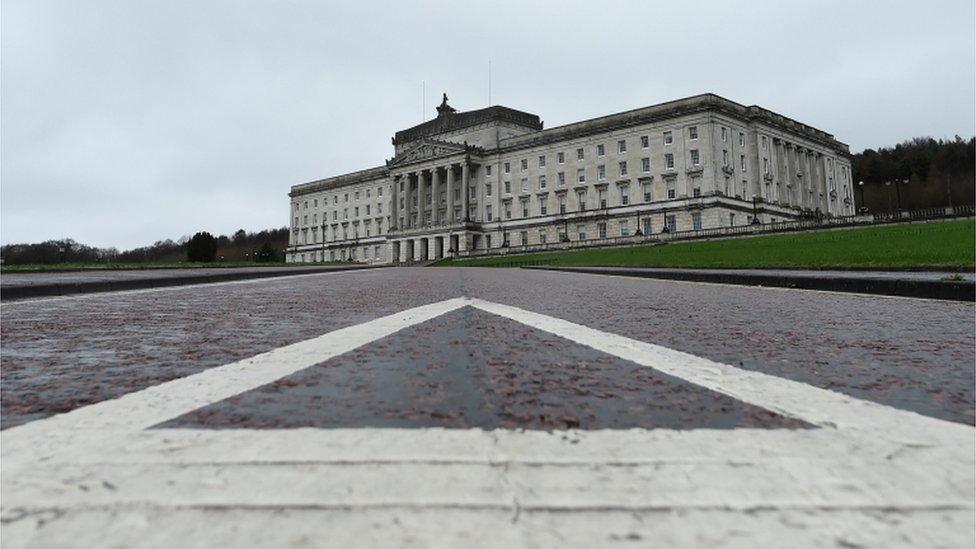Stormont 'could raise £600m' by following some GB policies
- Published
- comments

Paul Johnson, the chair of the Fiscal Commission, said water charges are an option for Stormont to raise extra funds but the move would be unpopular
The man leading a review of Stormont's tax and spending powers has said the executive could have up to £600m to spend if it brought some policies into line with other parts of the UK.
However that would involve politically unpopular measures such as water charges, higher rates and reversing welfare mitigations.
Paul Johnson said he was not suggesting these measures should happen.
But, he said they were an example of the sort of choices that can be made.
The Fiscal Commission, which he is chairing, is focusing on what taxes could be devolved to Northern Ireland.
Mr Johnson is the director of the Institute for Fiscal Studies (IFS), a high-profile think tank.
He was delivering the annual Donal Nevin economics lecture at Queen's University in Belfast.
Poor data on taxes
The commission is going through all UK taxes to assess which would be most suitable for devolution to Northern Ireland.
Mr Johnson said one of the issues facing their work is the relatively poor data on what taxes are actually collected in Northern Ireland.
For example, the estimate of VAT revenues is based on a sample of just 150 households.

The Fiscal Commission is looking at what taxes could be devolved to Northern Ireland's politicians at Stormont
Northern Ireland is the only devolved region not to have conducted a comprehensive taxation review.
In Wales, the Holtham Commission reported in 2010 and in Scotland, the 2014 Smith Commission led to the devolution of some income tax powers.
Since 2015, Northern Ireland has had the power to cut corporation tax, albeit with Treasury approval.
However that power has never been exercised largely because public finance rules mean it would lead to a cut in the block grant which funds public services.
Mr Johnson said this issue of "block grant adjustment" remains a key issue.
He said the commission is also examining how the Northern Ireland Protocol could impact the ability to devolve taxes.
The commission aims to have an interim report before the end of the year with a final report in the spring of 2022.
Mr Johnson said to expect "quite a big report".
- Published12 March 2021
